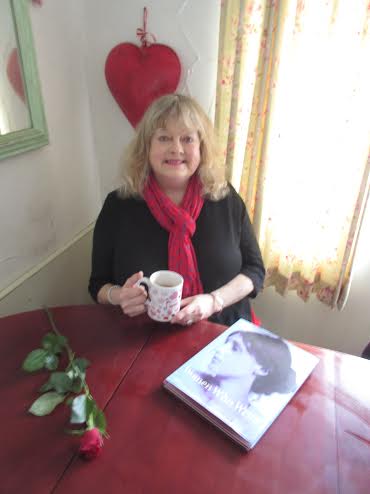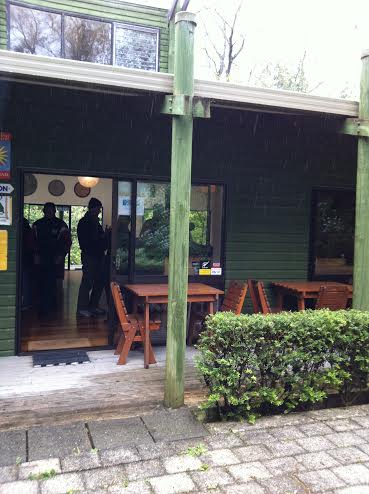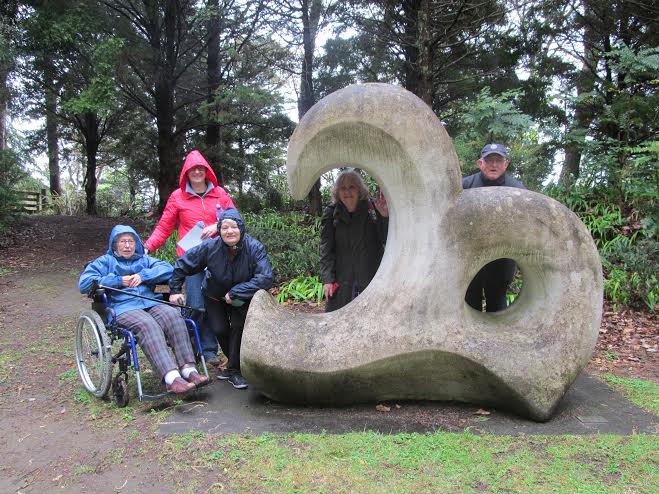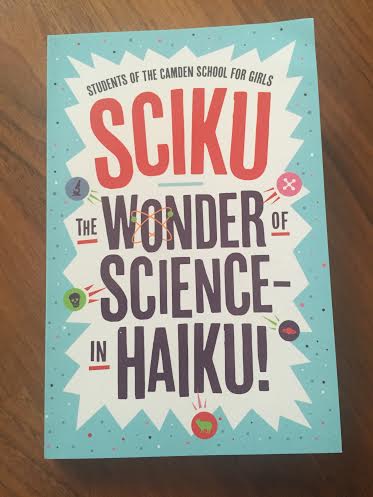 Are you sick of seeing the same faces in magazines all the time? So are we. As much as we love the people we read about in the magazines we think it is time to inject some freshness into the media landscape, it is time to give other people a chance, the hottest writers, actors, musicians, scientists, businesspeople.
Are you sick of seeing the same faces in magazines all the time? So are we. As much as we love the people we read about in the magazines we think it is time to inject some freshness into the media landscape, it is time to give other people a chance, the hottest writers, actors, musicians, scientists, businesspeople.
We want to give people the publicity they deserve, our first one is American author Roy A. Tindle, but watch out for more fresh faces; both old and new, and let us know if you know anyone worthy of inclusion.
The first of our New Faces is American writer Roy A. Tindle. We have interviewed him and include some examples of his work below. We hope you like him as much as we do.
Tell us about your writing
I’ve been writing for as long as I can remember. I began writing simple poetry and short
stories then eventually moved on to novellas. Although I had some poetry published,
I never spent much energy trying to publish any of my earlier work until about two years
ago when I finally decided to attempt writing my first full novel. That is when ‘Motive’
was born.
What is your inspiration?
Most of my work may seem a little dark at first glance, but in nearly every case I attempt
to highlight the brighter side of life and love. I enjoy drawing the parallels between
light and dark, good and evil and the contrast between where we are now and where
we might one day be as individuals and as a society. My goal is to cause people to pause
long enough to take a look inside themselves to discover who they really are and ask
themselves the tough questions. Ultimately, I hope to inspire and uplift people with
what I write. These things are what inspire me to write.
What is your writing routine?
My writing routine is anything but a routine. I try to spend time each day writing, but
that isn’t always possible. Research, editing and habitual rereading occupies much of
my time. Frankly, if I manage to finish one good page a day I’m happy. That may not
seem like a lot and it’s true that it’s a slow process, but I’m hoping to produce chapters
that offer a smooth read that is not only entertaining and suspenseful, but is also
technically accurate.
What are you favourite books/authors?
I enjoy reading books of nearly all genres and there are myriad authors who I could
mention here, but to narrow it down to a top three, my favorite authors of all time
would be Dean Koontz, Michael Crichton and Jules Verne and for those who are familiar
with their work will undoubtedly see their influence in my writing style. I’ve always
enjoyed Dean Koontz’s ability to convince his readers that the villain in his stories are
more than human and almost omniscient, but ultimately he demonstrates that true evil
exists all around us and the real boogey man, although he may truly be hiding under
your bed, he isn’t necessarily a supernatural force. He’s the guy next door. Michael
Crichton and Jules Verne perfected the art incorporating real world science into a
fictional format. I’m a tech and science geek and not afraid to admit it. Crichton and
Verne are master story tellers who not only tell a good story, they educate their readers
in the process. Journey to the Center of the Earth is above all my favorite book. I have a
collectible first printing of that classic hidden away someplace.
Tell us about Motive
‘Motive’ is a book about the human condition and perhaps offers some understanding
of who we are. Although Motive is a suspense novel and, consequentially, much of its
focus is on the darker aspects of human nature, there is light at the end of the tunnel.
This story ultimately leads the reader on a journey throughout the mind, not only from
the dark corners of our psyche and the disturbing things we may find there, but also to
the inspiring and sometimes crippling effects of love and loss and hope and faith and all
those things that define who we are.
What is the best thing about writing?
For me, the best thing about writing is being allowed to use my imagination freely and
act a little crazy without the risk of being committed. Lol It is an escape from reality,
really. I think we all need that once in a while. Some people go to the beach. I write…
And the worst?
The worst thing about writing has to be the loneliness. I consider myself a social
dragonfly, but writing is mostly a solitary craft. I enjoy the independence of being
a writer, but I often miss the daily interactions I’d have with friends by working a
traditional job.
What’s next?
What’s next? I’d really like to write something light and fun. I’ve enjoyed writing
Motive very much, but as I mentioned before, the story is a bit dark and highly technical.
I’m playing around with some new ideas and a particular character named Norman
“Northman” Northcutt may be making a debut with his ‘amazing abnormalities’ very soon.
Excerpts below
ABSOLVED OF ABSOLUTION (A Poem) – By Roy A. Tindle
Absolved of Absolution
Pretend it never happened. It is so easy to simply neglect the obligations of our hearts, to follow blindly
our captive minds and to imagine our lives are predetermined to lead by whatever means to a fateful and
hollow solitude. Lonesome tears fall more abundantly when absolved from absolution. You are to blame
yet your ignorance is your innocence.
A wound heals better when salved with the healing blessings from someone whose blessings are passed
without reproach. Become blameless by not placing blame and human in your fallacy. You’ve loved
before without knowing how it is that love should be, yet still you loved disgracefully and now, when love
is not an ignominy, you hide your face in shame.
I pray each night not knowing to who’s ears my prayers fall, but I pray still regardless knowing that even
though deaf ears may hear them I have at least spoken them and therefore I am absolved. I forgive
myself for all I’ve done and not with arrogance. Instead I know that the mistakes I’ve made were made
before knowing that our hearts are equally fragile, therefore I am determined to help you heal yours as
tenderly as if your heart were mine.
We are not much different you and I. No matter how things may seem. We hurt, we cry, we love and
we die and we can only hope we don’t have to do it alone. However in the end no matter when that time
may be, I’ll know that when I close my eyes I’ll have been absolved from absolution.
MOTIVE (Synopsis) – By Roy A. Tindle
In a small sleepy town in southern Michigan, local law enforcement struggles to identify the
cause for a sudden outbreak of horrendous crimes. As the townsfolk continue to disappear,
two desperate detectives team up with an eccentric college professor and forensic psychologist
who may have some insight into the cause. As the team is drawn further into the mystery,
they discover the true potential of man and, by doing so, they begin to understand how dark it
can become when one dives deeper into the cold abyss of the mind. Whether in love or hate,
darkness hides many secrets…. Secrets they’ll wish they had never uncovered.
MOTIVE (Excerpt) – By Roy A. Tindle
Professor Fredericks grimaced when he took the first bite of his steaming TV dinner. He
had become accustomed to the finer things in life and this of course extended to his cuisine. He
ate most meals alone at his favorite Italian restaurant, Giuseppi’s. Most days after leaving the
college he would stop in for dinner, usually spaghetti and salad with the accompaniment of a
house red wine. The staff at the restaurant knew him on a first name basis and, unless he called
ahead to notify them he would be late or absent, as he did today, his table would be reliably
reserved and the preparation of his meal would be in progress prior to his arrival.
Today however, he decided to eat at home. A decision he had come to regret. He had
no desire to be around people again today and what’s done is done. In the mind of the professor,
the best company was no company at all, unless of course you count the professor himself.
Now alone and, being that his talents do not extend to kitchen work and since he did not have the
foresight to grab some kind of carryout, he would have to make do with what he had. Having
been in the habit of not keeping much in his home for meals and, due to his reclusive nature, he
was left with choking down this tasteless meal in a box. The label on the box said it contained
spaghetti, but the quality of the meal offered debate on the side of shredded shoe leather doused
in tomato juice.
After a few agonizing bites of his microwaveable dinner, the professor tossed the
cardboard tray in the trash then attempted to rinse the foul taste from his mouth with an
expensive merlot. He drained his glass then refilled it to the rim. Although the food he kept in
his home lacked of any real quality, he had an extensive stock of delicate wines, one of which he
gluttonously slurped on now. He wasn’t really hungry anyway.
The professor gathered his wine glass, then on second thought the bottle too, and then
carried his defunct liquid meal to his study where he plopped down on to his vintage brown
leather arm chair. The walls of the study were lined with hundreds of books, reference manuals
and text books. He was an avid reader and had read every one of these books at least twice each.
Some he had written himself. Tonight however, he would not be reading.
He felt lazy. Laziness was not a usual aspect of the professor’s personality, but he
allowed himself this occasional indulgence. He picked up the television remote from the small,
ornate table he had positioned next to his chair and pressed the power button. The small color
television in the corner of the room came to life. The volume was too high for the program that
was currently being displayed. An alternative music station played the non-melodic and off-
tempo cadence of an unpopular punk-rock group. The professor quickly changed the channel.
After flipping mindlessly through a few more stations, the Professor began to become lost
in his thoughts. He thought back through days gone by and relished in his memories. He thought
about his youth and all the days so long ago when life was much simpler.
He remembered fishing with his father on the muddy banks of the Dowagiac River. His
father would expertly cast and reel, then cast again a series of three or four fishing poles with
complicated looking reels that somehow spooled the fishing line around an exposed sprocket
instead of pulling it into a closed chamber as did the much simpler red and blue Spiderman pole
he was forced to use. His father said his Spiderman pole had what was called a “closed-bail
reel”, whatever the heck that meant.
He laughed when he remembered how his father rarely caught a fish, not because he
wasn’t a skilled angler, he was, but while fishing with his ungainly son he spent more time
retrieving snagged hooks and lures from the branches of surrounding trees than he did actually
fishing. Regardless of his continued failures and inability to properly cast a fishing line, the
Professor never gave up. He wanted his father to be proud and, although he always felt like he
had disappointed him, his father would gracefully brush off his failures with silence, a knowing
smile or the occasional razzing.
“Look at you go, Justin! You caught that big ‘ole tree and I all I managed to snag was
this measly minnow,” His father would say while holding up a sizeable bass nearly as long as the
young boy’s arm.
He knew his father was patronizing him, but he was glad for it. He would just smile
sheepishly or sometimes play along with his father’s joke. They laughed together and smiled
often. Life was so good then.
The Professor cared deeply for his father. He didn’t love him out of any childish sense of
obligation, but because he knew how much his father loved him and his love was given without
reproach. Their close relationship and great love was sustained through the young Professor’s
life. From childhood to adolescence and on into adulthood, the Professor never lost any love for
his father.
Though the wound created by the tragic and sudden loss of his father nearly twenty
years ago had not yet been fully healed, the time had not diminished his memories either. He
embraced the good memories as well as the pain, for the Professor believed that is through pain
we truly begin to become alive. In the Professor’s opinion, it is impossible to appreciate life
until we know death. Just as it is difficult to truly appreciate water until we walk through the
desert or how we cannot fully appreciate true love until our hearts have been broken a time or
two.
The wounds a heart survives throughout one’s life can sometimes leave it a little callused,
but ultimately it is that same pain that brings understanding, faith and hope. With pain also
comes the loss of innocence and triumph over naivety. Some would call this maturity. The
Professor called it an awakening.
As a child, one doesn’t bother worrying about the day-to-day stuff that overruns the
minds of most adults. When a person is young the only thing that matters is the here and now.
Each day is an adventure, full of new surprises and the unknown. Being new to the world, life
for a child is fresh, vibrant and full of color. Most profound of all, the professor decided, is that
children possess the minds of Saints. This is not to say that children behave in the manner of
a Saint, not in the least, but their innocent minds allow them the ability to expect the best, not
only from the wonderful world in which they live, but also from the people who surround them.
Funny how quickly things can change.
The Professor sometimes allowed himself this selfish session of regressive thinking.
Not only did he enjoy the memories of his youth and of his father, it also helped place into
perspective the contrasted differences of adulthood and the responsibilities that come with the
knowledge gained by it. As a college professor responsible for the education of young minds
in the field of criminal psychology, one must always maintain perspective. To understand the
mind of a criminal, or any mind for that matter, it is of course important to recognize the factors
responsible for the development and ultimate product of an individual’s psyche. Professor
Fredericks knew how much influence one’s childhood could have on their adult lives. Ever
since that day many years ago when his father was murdered before his eyes, the Professor knew
first hand. This is in great part why he became a forensic psychologist, and it is also why he
maintained a personal file for each of his student’s. You never know who you can trust.
Although spying on the personal lives of his students went against every policy and
guideline set forth by the University, the Professor felt it was absolutely necessary. He kept files
for each of his students here, in his home, locked in a file cabinet in the room in which he now
sat. It would be too risky keeping the files in his office at the college. If the college somehow
discovered he kept such personal information on his students, he would at the very least be
reprimanded and, more likely, terminated.
Within any given file, the Professor kept records of everything he thought might be
useful in determining the mindset of the student. He kept medical records which would indicate
any potential drug habits as well as reports of possible domestic violence either perpetrated
against them or by them. He also kept other criminal records as well as any media-related items
and articles from local newspapers and school newspapers that may have been generated as a
result of a student’s mischief. A complete family history was also included along with their
academic reports dating back through their elementary school years. The majority of these
reports were obtained through a little novice hacking of the college’s computer system, the
internet or by photocopying documents hijacked from the school’s office of the registrar. Some
of the information contained within these files could not be obtained through any published or
public source. For the really good stuff he hired a private detective.
He wondered sometimes how his student’s would react if they ever found out that most
days, when they were not in class or studying in their dorms, that their personal lives were being
recorded, documented and filmed. The Professor had spent countless hours reading reports
created by a private detective or watching video of them living out their personal lives. The
Professor knew, with the exception of a few elusive students, who within his class drank too
much, did drugs, if they were straight or gay, who they interacted with, what kind of food they
ate, who they were sleeping with – if anyone, and what kind of car they drove and even how
they drove it. He knew what stores they shopped at and he even knew how much money they
had in their bank accounts to go shopping with. There wasn’t much the Professor did not know.
However, there was at least one thing he had not been able to uncover.
He had learned through these reports, along with a little deduction, that a growing group
of students had been meeting privately over the last couple months. What it is they were meeting
about remained a mystery. Mysteries don’t settle well with the Professor. He liked to know
what his students were up to. This is why he decided to spend this Friday evening on a mission
of discovery. Later he would once again follow this group himself and give the P.I. a night off.
Besides, with all of this thought about his childhood, the professor felt inclined to be like a child
again and set out on an adventure.
He glanced at his watch; an expensive Rolex. He had plenty of time before he had
to leave and he knew just how he would pass the time. The professor settled further into his
comfortable leather chair, once again allowing himself to revisit the memories of his youth.
There was one memory in particular he cherished especially. This beloved memory was a
mental movie that played over and over again upon the silver screen of his mind. Knowing he
would be unable to stop it from playing, even had he wanted to, he easily surrendered to his
thoughts and allowed the aged and spotted film to roll.
He took another sip of merlot then closed his eyes and smiled.
Motive will be available in the spring of this coming year. It will be available initially on Amazon.com and a few other places.
www.facebook.com/book.motive
www.AuthorRoyATindle.Yolasite.com















